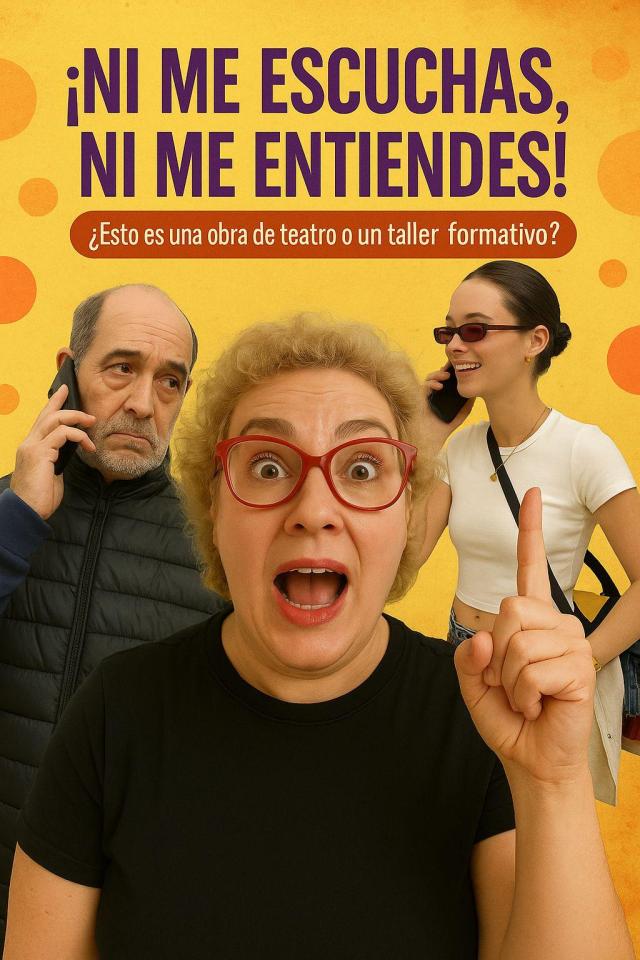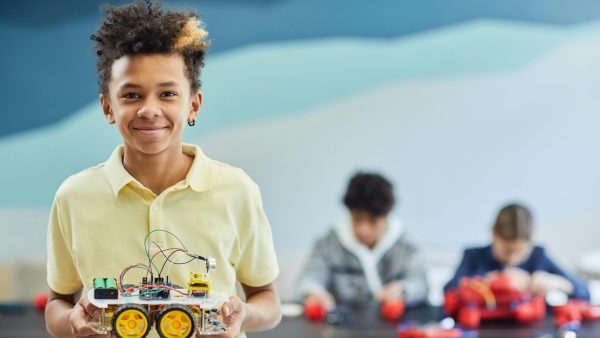Long silences at the table, arguments sparked by an ill-advised comment in a Teams chat or school WhatsApp group, meetings where we are disconnected from the discussion, checking our phones… These are everyday scenes that repeat themselves without us knowing how to deal with them. And yet, there is a powerful and little-explored way to intervene from a place of awareness and emotional connection: educational humour.
The use of humour — especially through theatrical dynamics, dramatisations or exaggerated stories — allows us to represent these conflictive situations without judgement or direct confrontation. It invites us to observe ourselves from a distance, laugh at our contradictions and open up spaces for real dialogue.
- Humour does not minimise the problem. It makes it accessible.
- Humour does not replace intervention. It humanises it.
- Humour does not avoid conflict. It makes it approachable.
Incorporating playful and theatrical strategies into our workshops and training courses can be the turning point that facilitates an honest, resistance-free conversation about the impact of excessive screen use on our digital well-being.
As part of Fundación Telefónica’s Volunteering Day, we are presenting a different, exciting and transformative activity: ‘You don’t listen to me, you don’t understand me’, a theatre-workshop for families that combines the power of humour with educational and digital tools. Because sometimes, to talk about serious things, we need to start by smiling.
This ‘educational show’ created and directed by Chimo Villena, educational psychologist, internal lecturer at Telefónica and expert in digital education, with the support of the theatre group ‘A Telón Cerrado’ and Telefónica Volunteers, consists of humorous sketches based on real scenes from family life, educational tips and audience participation.

The key is educational humour: a powerful tool that allows conflicts to be represented without confrontation, opens up spaces for dialogue, and connects people emotionally through laughter and complicity. It is not about minimising problems, but about making them accessible and approachable through empathy.
What do families take away from it?
By attending the theatre workshop, families not only have fun, they also learn practical strategies on basic digital skills to improve their digital coexistence:
- A Family Digital Plan, with real agreements on the responsible use of technology.
- Fair distribution of household chores, agreed upon according to age.
- Communication techniques and conflict management without shouting.
- Powerful ideas for improving the emotional climate at home, especially with teenagers.
- And, above all, a shared experience that strengthens emotional bonds.
The essential role of volunteers
This activity would not be possible without the active involvement of Telefónica volunteers, who participate in different roles, from supporting the management to being reporters themselves.
Telefónica Volunteers is one of the largest corporate volunteering initiatives in the country, channelling the commitment to solidarity of more than 58,000 employees in 30 countries, with a direct impact on more than 1.4 million people. In Spain, nearly 8,000 volunteers actively participate in projects that address digital inclusion, employability and the reduction of the technological divide, all under the umbrella of the Fundación Telefónica, which focuses its work on vulnerable groups such as the elderly, children, people with disabilities, migrants and women, offering training in digital skills, support and integration activities. Noteworthy initiatives include artificial intelligence workshops for young people, digitisation programmes for the elderly and digital skills development for teachers and families, such as LideresDigitales.
Every year, Telefónica International Volunteering Day, celebrated today, 6 June, brings together thousands of participants in global solidarity activities, highlighting their social impact.
This programme demonstrates how technology and solidarity can bring people together, because at Telefónica we connect people’s lives.
An innovative proposal: theatre as an educational resource







